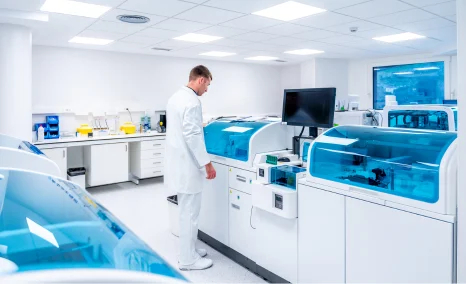BGB-16673 Breakthrough: A Tolerable Triumph in Rapid Clinical Responses for Relapsed/Refractory B-Cell Malignancies
Dec 15, 2023
| Date of Abstract presentation | 11th December 2023 |
| Indications | Relapsed or Refractory (R/R) B-Cell Malignancies |
| Abstract Number | 4401 |
| Abstract type | Poster |
The preliminary results from this ongoing clinical trial, unveiled at the ASH 2023 conference, demonstrated that, among the efficacy evaluable patients (n=28), BGB-16673 produced an overall response rate (ORR) of 57%. Moreover, the outcomes encompassed a diverse spectrum, including one complete response (CR), 13 partial responses (PRs), 1 PR with lymphocytosis (PR-L), and one minor response (MR). Additionally, five patients attained stable disease (SD), while five experienced progressive disease (PD). Two patients opted to discontinue treatment before their initial assessment. Notably, the disease control rate (DCR) reached 75%, and the median time to the first response stood at 2.76 months. These results illuminate the varied and promising landscape of treatment responses in this cohort. Apart from that, BGB-16673 achieved remarkable responses with a well-tolerated safety profile in R/R B-cell malignancies.
In the realm of hematologic malignancies, both covalent and non-covalent BTK inhibitors have become a standard-of-care treatment. However, a significant challenge arises as many patients confront disease progression due to acquired resistance mutations during their course of treatment. Offering a ray of hope, the chimeric degradation activating compound BGB-16673 emerges as a promising avenue for overcoming resistance to BTK inhibitors. By engaging with both BTK and E3 ligase, this agent triggers BTK degradation through ubiquitination. Encouragingly, preclinical models demonstrate that BGB-16673 effectively degrades not only wild-type BTK but also known resistant mutant proteins associated with both covalent and noncovalent BTK inhibitors, resulting in notable tumor suppression. This breakthrough presents a potential solution to address challenges posed by acquired resistance in the context of BTK inhibitor therapies.
KOL Insights
“Preliminary results demonstrate meaningful clinical responses with a short time to response in heavily pretreated patients with a range of B-cell malignancies. Substantial reductions in BTK protein levels in peripheral blood and tumor tissue were also observed, demonstrating proof-of-concept of a strong, on-target effect.” –Expert Opinion.
Downloads
Click Here To Get the Article in PDF
Recent Articles
- Cancer, diabetes and eczema on list; AbbVie’s Humira; Teva weighs $2B; Fresenius in buyout ...
- World Brain Tumor Day
- Cancer Biomarkers: Improving Treatment and Detection
- The Expanding Market of Complement Inhibitors
- Cancer Diagnostic Market: Evaluating the Major Growth Factors and the Key Developments in the Domain
Conclusion
The BTK degrader BGB-16673 exhibited excellent tolerability, induced prompt and significant clinical responses, and demonstrated on-target effects among patients grappling with relapsed/refractory B-cell malignancies. This compelling evidence positions BGB-16673 as a promising and well-received advancement in the treatment landscape for these challenging hematologic conditions.
Refer to the Related Reports for More In-depth Insights –
Downloads
Article in PDF




